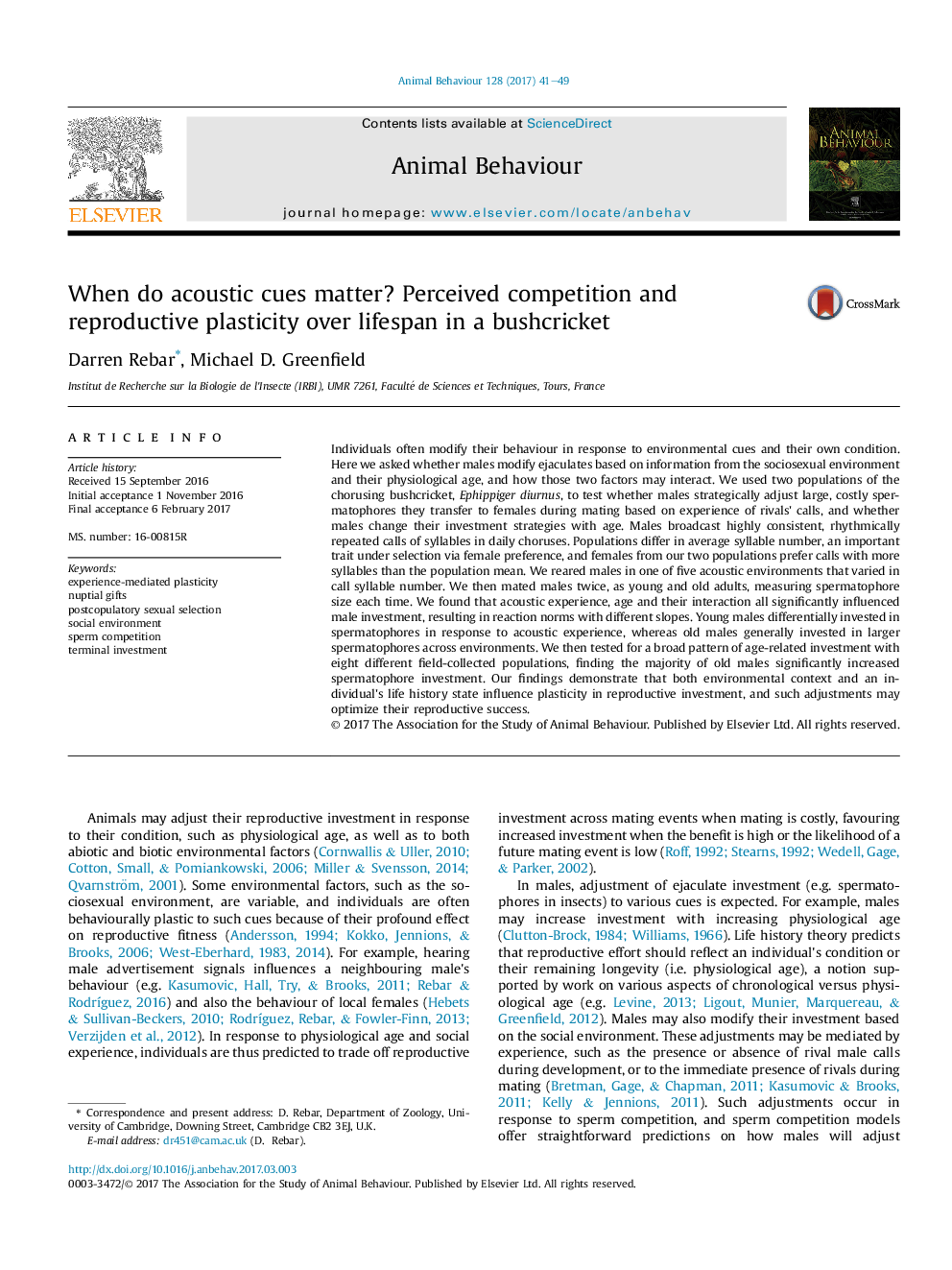ترجمه فارسی عنوان مقاله
وقتی نشانه های آکوستیک مهم هستند؟ رقابت درک شده و انعطاف پذیری تولید مثل در طول زندگی در یک بوش کریکت
عنوان انگلیسی
When do acoustic cues matter? Perceived competition and reproductive plasticity over lifespan in a bushcricket
| کد مقاله | سال انتشار | تعداد صفحات مقاله انگلیسی |
|---|---|---|
| 130266 | 2017 | 9 صفحه PDF |
منبع

Publisher : Elsevier - Science Direct (الزویر - ساینس دایرکت)
Journal : Animal Behaviour, Volume 128, June 2017, Pages 41-49

